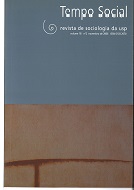Indiginous inclusion and afro-descendant exclusion in Latin America
DOI:
https://doi.org/10.1590/S0103-20702006000200005Keywords:
Multiculturalism, Latin America, Blacks, Indigenous peopleAbstract
The author analyses the causes of the disparity in collective rights gained by indigenous and Afro-Latin groups in recent rounds of multicultural citizenship reform in Latin America. Instead of attributing the greater success of indians in winning collective rights to differences in population size, higher levels of indigenous group identity or higher levels of organisation of the indigenous movement, it is argued that the main cause of the disparity is the fact that collective rights are granted on the basis of possessing a distinct group identity defined in cultural or ethnic terms. Indians are generally better positioned than most Afro-Latinos to claim ethnic group identities separate from the national culture and have therefore been more successful in winning collective rights. One of the potentially negative consequences of basing group rights on the assertion of cultural difference is that it might lead indigenous groups and Afro-Latinos to privilege issues of cultural recognition over questions of racial discrimination as bases for political mobilisation in the era of multicultural politics.Downloads
References
ANDERSON, Mark. (2003), “Why black politics (sometimes) looks like indigenous politics in Latin America: insights from Garifuna Movements in Honduras”. Trabalho apresentado no Seminário Rockefeller sobre Direitos Raciais e Recursos nas Américas. Austin, Texas, Universidade do Texas, 21 de março.
ARIAS, Omar & DURYEA, Suzzane. (s.d.), “Social exclusion due to race or ethnicity in Latin America: what do we know”. Working Paper, Inter-American Development Bank.
BRYSK, Alison. (2000), From tribal village to global village: indian rights and international relations in Latin America. Stanford, Stanford University Press.
BRYSK, Alison & WISE, Carol. (1997), “Liberalization and ethnic conflit in Latin America”. Studies in Comparative International Development, 32 (2): 76-105.
COTTROL, Robert J. & HERNÁNDEZ, Tanya Kateri. (s.d.), “The role of law and legal institutions in combating social exclusion in Latin American countries: afro-american populations”. Working Paper, Inter-American Development Bank, pp. 14-15.
FRASER, Nancy. (1997), Justice interruptus: critical reflections on the “postsocialist” condition. Nova York, Routledge.
GORDON, Edmund T. (1998), Disparate diasporas: identity and politics in an African Nicaraguan community. Austin, University of Texas Press, p. 121.
GRUESO, Líbia; ROSERO, Carlos & ESCOBAR, Arturo. (1998), “The process of black community organizing in the Southern Pacific Coast Region of Colombia”. In: ALVAREZ, Sonia E.; DAGNINO, Evelina & ESCOBAR, Arturo (eds.), Cultures of politics/
politics of cultures: re-visioning Latin American social movements. Boulder, CO, Westview Press.
HALE, Charles. (2002), “Does multiculturalism menace? Governance, cultural rights and the politics of identity in Guatemala”. Journal of Latin American Studies, 34 (3): 485-524.
HANCHARD, Michael. (1994), Orpheus and power: the Movimento Negro of Rio de Janeiro and São Paulo, Brazil, 1945-1988. Princeton, Princeton University Press.
HOOKER, Juliet. (2005), “‘Beloved enemies’: race and official mestizo nationalism in Nicaragua”. Latin American Research Review, 40 (3): 14-39.
HOPENHAYN, Martín & BELLO, Alvaro. (2001), “Discriminación étnico racial y xenofobia en América Latina y el Caribe”. División de Desarrollo Social de la Comisión de las Naciones Unidas para América Latina (Cepal/Eclac), Santiago, Chile, p. 5.
KNIGHT, Alan. (1990), “Racism, revolution and indigenismo: Mexico, 1919-1940”. In: GRAHAM, Richard (ed.), The idea of race in Latin America, 1870-1940. Austin, University of Texas Press, pp. 71-113.
LOVELL, Peggy. (1994), “Race, gender and development in Brazil”. Latin American Research Review, 29 (3): 7-35.
MARX, Anthony. (1998), Making race and nation: a comparison of the United States, South Africa, and Brazil. Cambridge, Cambridge University Press.
NOBLES, Melissa. (2000), Shades of citizenship, race and the census in modern politics. Stanford, Stanford University Press.
OAKLEY, Peter. (2001), “Social exclusion and Afro-Latinos”. Working Paper, InterAmerican Development Bank.
PATRINOS, Harry Anthony. (2000), “The cost of discrimination in Latin America”. Studies in Comparative International Development, 35 (2): 4, verão.
RAMOS, Alcida. (2000), The commodification of the Indian. Brasília, Universidade de Brasília.
RESTREPO, Eduardo. (1997), “Afro-colombianos, antropología y proyecto de modernidad en Colombia”. In: URIBE, Maria Victoria & RESTREPO, Eduardo (eds.), Antropología en la modernidad: identidades, etnicidades y movimientos sociales en Colombia. Bogotá, Colômbia, Instituto Colombiano de Antropología, pp. 279-319.
RODRÍGUEZ, Jaime Arocha. (1992), “Afro-Colombia denied”. NACLA Report on the Americas, 35 (4): 46.
SILVA, Nelson do Valle. (2000), “A research note on the cost of not being white in Brazil”. Studies in Comparative International Development, 35 (2):18-28, verão.
SPEED, Shannon. (2002), “Global discourses on the local terrain: human rights and indigenous identity in Chiapas”. Cultural Dynamics, 14 (2): 205-228.
THORNE, Eva. (2003), “The politics of Afro-Latin land rights”. Trabalho apresentado no 34th annual meeting of the National Conference of Black Political Scientists, Oakland, CA, p. 5, 12-13 de março.
VAN COTT, Donna Lee. (2000a), “Latin America: constitutional reform and ethnic right”. Parliamentary Affairs, 53 (1): 41-54.
VAN COTT, Donna Lee. (2000b), The friendly liquidation of the past: the politics of diversity in Latin America. Pittsburgh, University of Pittsburgh Press.
WADE, Peter. (1993), Blackness and race mixture: the dynamics of racial identity in Colombia. Baltimore, Johns Hopkins University Press.
WADE, Peter. (1995), “The cultural politics of blackness in Colombia”. American Ethnologist, 22 (2): 342-358.
WADE, Peter. (1997), Race and ethnicity in Latin America. Londres, Pluto Press.
WINANT, Howard. (1992), “Rethinking race in Brazil”. Journal of Latin American Studies, 24: 173-192.
YASHAR, Deborah. (1999), “Democracy, indigenous movements, and the postliberal challenge in Latin America”. World Politics, 52 (1): 76-104.
Downloads
Published
Issue
Section
License
Copyright (c) 2015 Tempo Social

This work is licensed under a Creative Commons Attribution-NonCommercial 4.0 International License.


